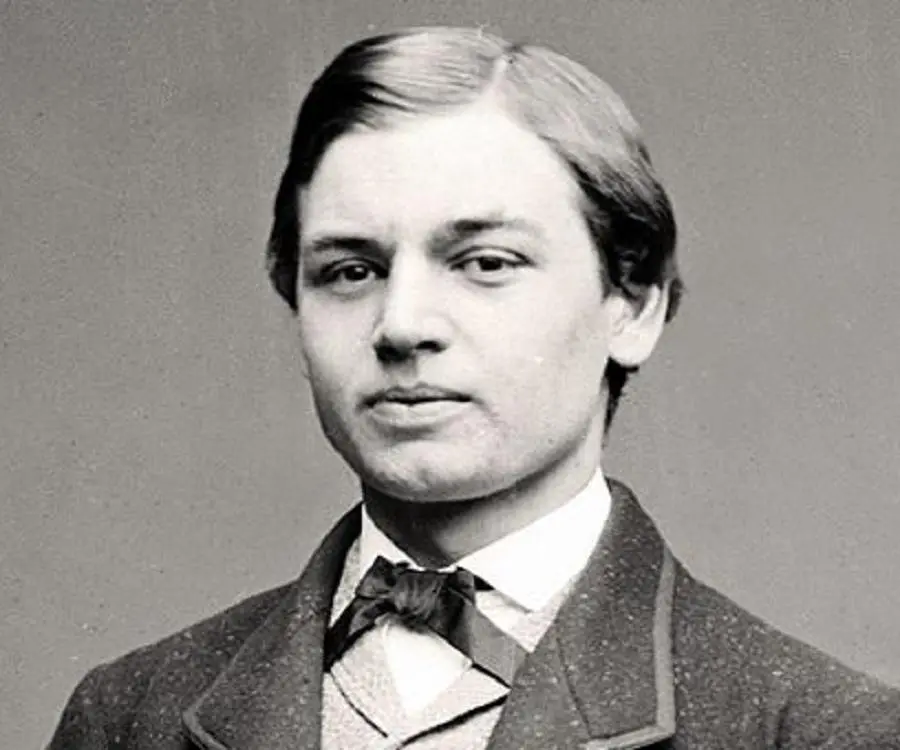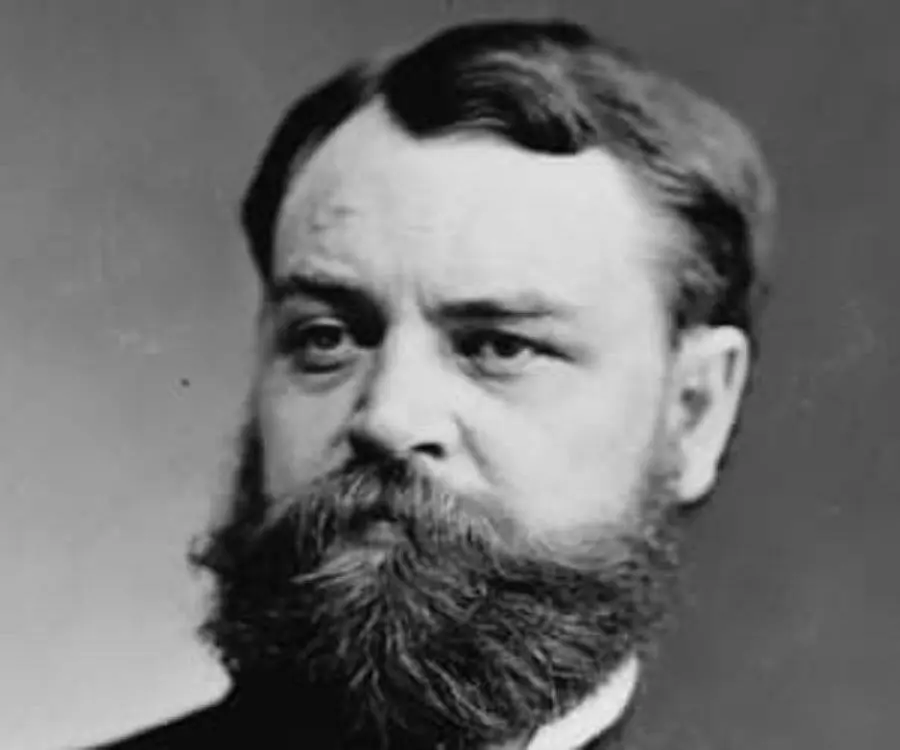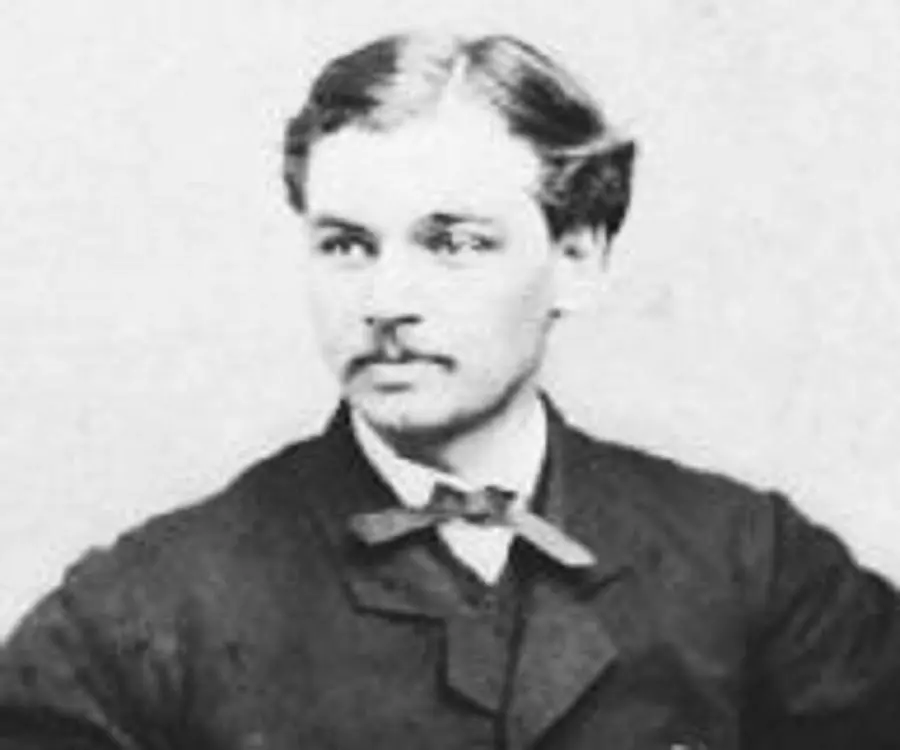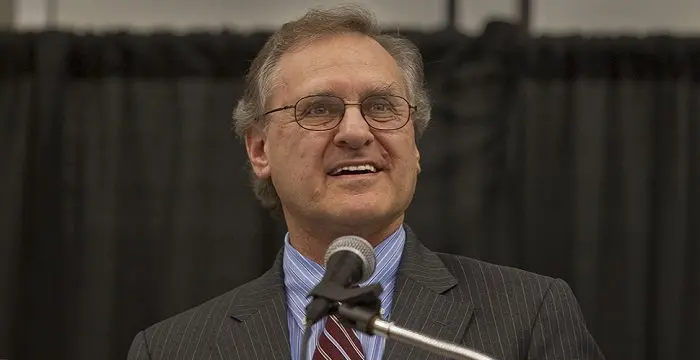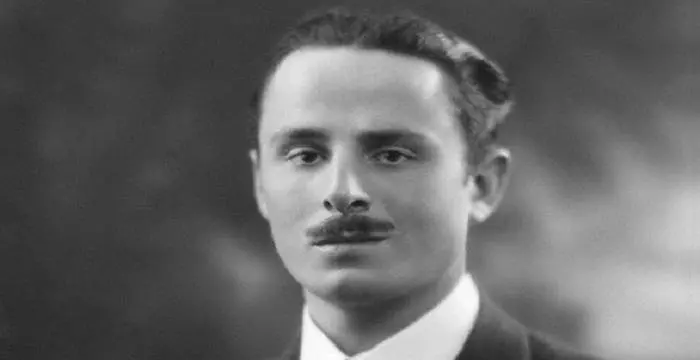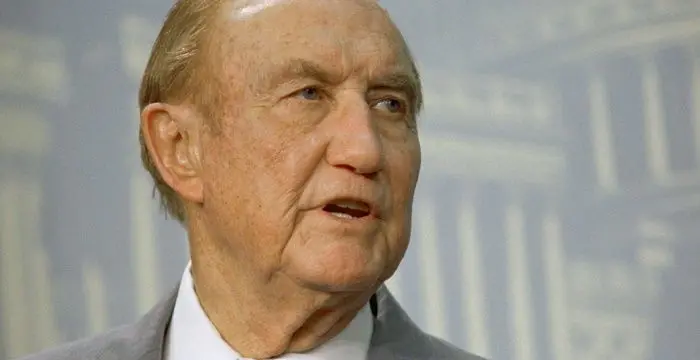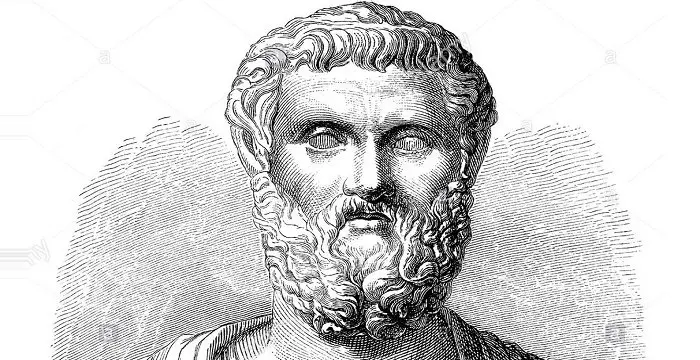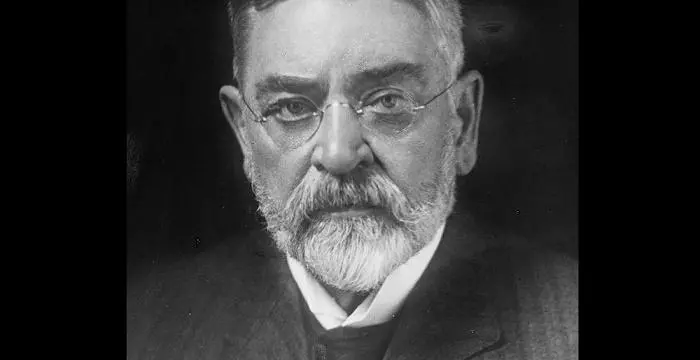
Robert Todd Lincoln - Son of Abraham Lincoln, Life Achievements and Personal Life
Robert Todd Lincoln's Personal Details
Robert Todd Lincoln was an American statesman, diplomat, businessman, and lawyer
| Information | Detail |
|---|---|
| Birthday | August 1, 1843 |
| Died on | July 26, 1926 |
| Nationality | American |
| Famous | Leaders, Political Leaders, Diplomats, Family Members, Politician, Son of Abraham Lincoln |
| City/State | Illinois |
| Spouses | Mary Harlan Lincoln (m. 1868–1926) |
| Siblings | Edward Baker Lincoln |
| Universities |
|
| Birth Place | Springfield, Illinois |
| Height | 177 |
| Gender | Male |
| Father | Abraham Lincoln |
| Mother | Mary Todd Lincoln |
| Sun Sign | Leo |
| Born in | Springfield, Illinois |
| Famous as | Politician, Son of Abraham Lincoln |
| Died at Age | 82 |
Robert Todd Lincoln's photo
Who is Robert Todd Lincoln?
Robert Todd Lincoln was an American statesman, diplomat, businessman, lawyer, and briefly a union captain during the Civil War. He was the oldest son of the 16th President of the United States of America, Abraham Lincoln, and his wife, Mary Todd Lincoln. Raised in Illinois, he attended the Harvard College before enlisting in the Union Army as a captain during the closing days of the American Civil War. Robert was in his early 20s when his father was assassinated but he carried on his astounding legacy for the rest of his life. He joined the Republican politics, following his father’s footsteps, and at one point, held the position of the town supervisor of South Chicago. In his later years, he served as the Secretary of War in the administration of James A. Garfield, the 20th US President and continued to do so under Chester A. Arthur. During the Benjamin Harrison administration, Lincoln was appointed as the US Ambassador to London. As a prominent businessman and lawyer, Lincoln was the general counsel of the Pullman Palace Car Company. Following the death of its founder, George Pullman, in 1897, he was made the president of the company. While he retired from the position in 1911, he remained a part of the company as a member of the board up to 1922.
// Famous Politician
Sebastian Coe
Sebastian Coe is a British former track and field athlete turned politician. This biography of Sebastian Coe provides detailed information about his childhood, life, achievements, works & timeline.
Stephen Lewis
Stephen Lewis is a Canadian politician, broadcaster, diplomat and professor. This biography profiles his childhood, career, works, life, achievements and timeline.
Oswald Mosley
Sir Oswald Ernald Mosley was a British politician known for his pro-fascist beliefs. This biography profiles his childhood, family, personal life, opinions, career, etc.
Childhood & Early Life
Born on August 1, 1843, in Springfield, Illinois, Robert Lincoln was the first of the four sons of Abraham Lincoln and Mary Todd Lincoln. His three younger brothers were Edward Baker Lincoln, William Wallace Lincoln, and Thomas "Tad" Lincoln.
As he was growing up, his father was becoming an important figure in the national politics. In 1859, he took the Harvard University entrance examination but did not get passing marks in 15 out of the 16 subjects. He then started attending Phillips Exeter Academy which helped him prepare for college. He eventually did get into Harvard and graduated in 1864.
Between September 1864 to January 1865, Lincoln attended Harvard Law School but quit to join the Union Army. However, his mother was vehemently against the notion of her son fighting in the war and stopped him from enlisting to fight in the Civil War until shortly before the war’s end, much to the embarrassment of the president.
After his father’s death, Lincoln relocated to Chicago with his mother and younger brother Tad Lincoln. He attended Old University of Chicago law school, his father’s alma mater, and graduated from there with a degree in law. On February 22, 1867, he received his license as an attorney in Chicago. Four days later, he was granted admission to the bar. The certification to practice law arrived shortly after.
Military Career
On February 11, 1865, Robert Todd Lincoln received his commission as an assistant adjutant with the rank of captain and was active during the last few weeks of the war. He served under General Ulysses S. Grant as a member of his immediate stuff.
He did not see any combat but witnessed the surrender of Confederate States Army General-in-Chief, Robert E. Lee at Appomattox. On June 12, 1865, he submitted his resignation from the army, subsequently returning to civilian life.
The Assassination of President Lincoln
Robert’s relationship with his father was distant at best. It was partly due to the fact that when Robert was growing up, Abraham Lincoln spent much of his time in the judicial circuit. However, the relationship was of mutual respect. Abraham Lincoln was proud of his oldest son and found him to be bright and quite competitive.
On April 14, 1865, the night of his father’s assassination, Robert too was invited to attend the production of Tom Taylor’s three-act play ‘Our American Cousin’ at Ford’s Theatre, but he declined. President Lincoln was shot by Confederate sympathizer John Wilkes Booth at 10:13 pm and he died at 7:22 am on 15 April. When Robert saw his father on his deathbed, he broke down and cried.
Besides the night of his father’s assassination, Lincoln coincidentally attended or was supposed to attend two events where a US president was shot at. During the tenure of President James A. Garfield, he was serving as the Secretary of War and was present, at the president’s invitation, at the Sixth Street Train Station in Washington, D.C, where Garfield was shot at by American writer and lawyer Charles J. Guiteau on July 2, 1881.
He was also present at the Pan-American Exposition in Buffalo, New York, on September 6, 1901, at the invitation of President William McKinley. An anarchist named Leon Czolgosz shot the president at point-blank range at 4:07 P.M. However, Lincoln was not with the president when the incident occurred.
He was well aware of these bizarre and morbid coincidences. According to various sources, when he was asked to attend a presidential event in his later years, he declined with the following statement, “No, I'm not going, and they'd better not ask me, because there is a certain fatality about presidential functions when I am present.”
Political Career
Robert Todd Lincoln had significant political ambitions and had wanted to join the Republican politics for a while. He began his political career in 1876 when he was elected as the town supervisor of South Chicago, a town which would later be assimilated into the city of Chicago. The 19th US President, Rutherford B. Hayes, requested him to serve as the Assistant Secretary of State, but Lincoln declined.
In 1881, he accepted President Garfield’s offer to serve as his Secretary of War. His tenure would last from 1881 to 1885 and would encompass one year of President Garfield’s presidency and four years of President Chester A. Arthur’s presidency.
Lincoln left the office with the rest of the cabinet of President Arthur in 1885. In 1887, he provided Oscar Dudley with his support in the endeavour of establishing the Illinois Industrial Training School for Boys in Norwood Park. Dudley took the initiative after seeing “more homeless, neglected and abused boys than dogs on the city streets”.
In 1890, the school was moved to Glenwood, Illinois and recently was renamed Glenwood Academy. Since 2001, the school has been accepting female students as well.
In 1889, Lincoln assumed the office of the U.S. minister to the United Kingdom, formally the Court of St James's, under President Benjamin Harrison. He served in this position until 1893, during which, his only son Abraham II "Jack" passed away in Europe.
When his name circulated as a possible candidate for presidency or vice-presidency between 1884 and 1912, he vehemently refused to entertain such notions.
Later Years
After returning from Britain, Lincoln went back to practising law. While George Pullman, the founder of Pullman Palace Car Company, was the president of the company, Lincoln served under him as the general counsel. Pullman passed away in 1897 and Lincoln was named as his successor at the helm of Pullman Palace.
American historian Almont Lindsey, in his 1942 book, ‘The Pullman Strike’, claimed that Lincoln made sure that Pullman did not have to testify before the court in the 1895 trials of the leaders of the American Railway Union for conspiracy during the 1894 Pullman strike. *Pullman purposefully did not meet the deputy marshal who had gone to his office to hand him the subpoena. Following the dismissal of the jury, he, accompanied by Lincoln, met with Judge Peter S. Grosscup.
The strike also brought about other severe consequences for Pullman Palace. President Grover Cleveland’s administration set up a commission to find out why the strike occurred and they eventually concluded that Pullman’s paternalism party caused it. Furthermore, they stated that the way Pullman’s company town operated was “un-American”.
In 1898, while Lincoln was the president, the Supreme Court of Illinois ordered Pullman Palace to divest its ownership of the town and as there was nothing about that on the company charter, the city of Chicago annexed the land.
In 1911, Lincoln submitted his resignation and was appointed as the chairman of the board, serving in that position up until 1922.
Major Works
It was during his term in office that the Cincinnati Riots of 1884 took place. It broke out because of the public outrage stemming from the decision of the jury to return a verdict of manslaughter in the case of the wrongful death of William Kirk. People believed that it was a murder committed by two of Kirk’s employees, a white German named William Berner and Joe Palmer, who was of mixed African and European descent, on December 24, 1883.
Berner and Palmer were soon found and arrested. They were tried separately. While Palmer was found guilty of murder and was later executed, the jury, on March 26, 1884, gave the verdict that Berner had committed manslaughter. The presiding judge called the verdict, “A damned outrage.”
Riots broke out the following day. The juries were targeted and several of them were beaten up. Fifty-six people were killed and over 300 people were injured in the next three days. Lincoln promptly sent out US troops and order was finally established.
Personal Life, Death, & Legacy
Robert Todd Lincoln’s wife, Mary Eunice Harlan, was the daughter of the US Senator James Harlan and his wife Ann Eliza Peck. After Lincoln had returned from his military service, he met Mary sometime in 1864 and began courting her soon after. Both of his parents approved of the match and helped him with the courtship. They would have married early but his father’s death postponed it until 1868.
Robert and Mary Harlan had three children together: Mary "Mamie" Lincoln (October 15, 1869 – November 21, 1938), Abraham Lincoln II (nicknamed "Jack") (August 14, 1873 – March 5, 1890), and Jessie Harlan Lincoln (November 6, 1875 – January 4, 1948).
In an age when air conditioners did not exist, the Lincoln family spent their summers in the lovely and cool climate of Mt. Pleasant, Michigan. In the 1880s, the family started to stay at the Harlan home, which was later renamed as The Harlan-Lincoln home. Mrs Lincoln donated the house to Iowa Wesleyan College in 1907, and since then, it has been turned into a museum.
Lincoln’s married life was far from perfect. Mary Todd Lincoln lived with her son and his family for a while but left because she and her daughter-in-law did not get along. According to some sources, Mary Harlan Lincoln was an alcoholic and it caused problems in her relationship with her family.
Lincoln’s own relationship with his mother had its own share of issues as well. At that time, mental disorders were considered social taboos and families with relatives that had a mental condition were often ostracised.
It is common knowledge now that Mary Todd Lincoln was mentally ill but when she alive, people were not really aware of that. However, Robert recognized that his mother required psychiatric help and involuntarily committed her to Bellevue Place in 1875. He was trying to avoid public embarrassment.
In spite of his attempts, Mary Todd orchestrated her escape from Bellevue Place. She sent letters to the editor of Chicago Times, known at the time for its sensationalist journalism. As Robert was in control of Mary Todd’s finances, his motives for institutionalizing his mother were questioned.
At the second sanity hearing in 1876, it was concluded that Mary Todd was completely sane and was free to live with whoever she wished. The trial caused a permanent deterioration in the relationship between the mother and the son and it would not be mended before her death in 1882.
On July 26, 1926, at the age of almost 83, Lincoln passed away in his sleep at Hildene, his Vermont home. According to his physician, his death was caused by a "cerebral haemorrhage induced by arteriosclerosis”. He was buried in Arlington National Cemetery, in a sarcophagus alongside his wife Mary and son Jack.
Trivia
In the 2012 Oscar-winning film ‘Lincoln’, directed by Steven Spielberg, Robert was played by actor Joseph Gordon-Levitt.
// Famous Leaders
Edi Rama
Edi Rama is the current Prime Minister of Albania. Check out this biography to know about his childhood, life, achievements, works & timeline.
Tecumseh
Tecumseh was a Native American leader of the Shawnee clan. This biography profiles his childhood, life and timeline.
Khalifa bin Zayed Al Nahyan
Sheikh Khalifa bin Zayed Al Nahyan is the current President of the United Arab Emirates (UAE). Check out this biography to know about his birthday, childhood, family life, achievements and fun facts about him.
Robert Todd Lincoln biography timelines
- // 1st Aug 1843Born on August 1, 1843, in Springfield, Illinois, Robert Lincoln was the first of the four sons of Abraham Lincoln and Mary Todd Lincoln. His three younger brothers were Edward Baker Lincoln, William Wallace Lincoln, and Thomas "Tad" Lincoln.
- // 1859As he was growing up, his father was becoming an important figure in the national politics. In 1859, he took the Harvard University entrance examination but did not get passing marks in 15 out of the 16 subjects. He then started attending Phillips Exeter Academy which helped him prepare for college. He eventually did get into Harvard and graduated in 1864.
- // 1864Between September 1864 to January 1865, Lincoln attended Harvard Law School but quit to join the Union Army. However, his mother was vehemently against the notion of her son fighting in the war and stopped him from enlisting to fight in the Civil War until shortly before the war’s end, much to the embarrassment of the president.
- // 1865On February 11, 1865, Robert Todd Lincoln received his commission as an assistant adjutant with the rank of captain and was active during the last few weeks of the war. He served under General Ulysses S. Grant as a member of his immediate stuff.
- // 1865On April 14, 1865, the night of his father’s assassination, Robert too was invited to attend the production of Tom Taylor’s three-act play ‘Our American Cousin’ at Ford’s Theatre, but he declined. President Lincoln was shot by Confederate sympathizer John Wilkes Booth at 10:13 pm and he died at 7:22 am on 15 April. When Robert saw his father on his deathbed, he broke down and cried.
- // 1876At the second sanity hearing in 1876, it was concluded that Mary Todd was completely sane and was free to live with whoever she wished. The trial caused a permanent deterioration in the relationship between the mother and the son and it would not be mended before her death in 1882.
- // 1881In 1881, he accepted President Garfield’s offer to serve as his Secretary of War. His tenure would last from 1881 to 1885 and would encompass one year of President Garfield’s presidency and four years of President Chester A. Arthur’s presidency.
- // 1884When his name circulated as a possible candidate for presidency or vice-presidency between 1884 and 1912, he vehemently refused to entertain such notions.
- // 1885Lincoln left the office with the rest of the cabinet of President Arthur in 1885. In 1887, he provided Oscar Dudley with his support in the endeavour of establishing the Illinois Industrial Training School for Boys in Norwood Park. Dudley took the initiative after seeing “more homeless, neglected and abused boys than dogs on the city streets”.
- // 1889In 1889, Lincoln assumed the office of the U.S. minister to the United Kingdom, formally the Court of St James's, under President Benjamin Harrison. He served in this position until 1893, during which, his only son Abraham II "Jack" passed away in Europe.
- // 1890In 1890, the school was moved to Glenwood, Illinois and recently was renamed Glenwood Academy. Since 2001, the school has been accepting female students as well.
- // 1895American historian Almont Lindsey, in his 1942 book, ‘The Pullman Strike’, claimed that Lincoln made sure that Pullman did not have to testify before the court in the 1895 trials of the leaders of the American Railway Union for conspiracy during the 1894 Pullman strike. *Pullman purposefully did not meet the deputy marshal who had gone to his office to hand him the subpoena. Following the dismissal of the jury, he, accompanied by Lincoln, met with Judge Peter S. Grosscup.
- // 1898In 1898, while Lincoln was the president, the Supreme Court of Illinois ordered Pullman Palace to divest its ownership of the town and as there was nothing about that on the company charter, the city of Chicago annexed the land.
- // 1901He was also present at the Pan-American Exposition in Buffalo, New York, on September 6, 1901, at the invitation of President William McKinley. An anarchist named Leon Czolgosz shot the president at point-blank range at 4:07 P.M. However, Lincoln was not with the president when the incident occurred.
- // 1911In 1911, Lincoln submitted his resignation and was appointed as the chairman of the board, serving in that position up until 1922.
- // 1926On July 26, 1926, at the age of almost 83, Lincoln passed away in his sleep at Hildene, his Vermont home. According to his physician, his death was caused by a "cerebral haemorrhage induced by arteriosclerosis”. He was buried in Arlington National Cemetery, in a sarcophagus alongside his wife Mary and son Jack.
// Famous Political Leaders
Edi Rama
Edi Rama is the current Prime Minister of Albania. Check out this biography to know about his childhood, life, achievements, works & timeline.
Khalifa bin Zayed Al Nahyan
Sheikh Khalifa bin Zayed Al Nahyan is the current President of the United Arab Emirates (UAE). Check out this biography to know about his birthday, childhood, family life, achievements and fun facts about him.
Leo Varadkar
Cam Leo Varadkar is the current Taoiseach—the Prime Minister—of the Republic of Ireland. Check out this biography to know about his childhood, family life, achievements and other facts about his life.
Strom Thurmond
Strom Thurmond was an American politician, who represented the state of South Carolina in the United States senate for 48 years.
Solon
Solon was an Athenian lawmaker, poet and politician. He is considered as one of the ‘Seven Wise Men’ in Greek culture. This biography provides detailed information about his childhood, life, career, works, achievements and timeline.
Mohammed bin Salman
Mohammed bin Salman is the Crown Prince of Saudi Arabia and the heir apparent to the throne. Check out this biography to know about his childhood, family life, achievements and other facts about him.
Robert Todd Lincoln's FAQ
What is Robert Todd Lincoln birthday?
Robert Todd Lincoln was born at 1843-08-01
When was Robert Todd Lincoln died?
Robert Todd Lincoln was died at 1926-07-26
Which age was Robert Todd Lincoln died?
Robert Todd Lincoln was died at age 82
Where is Robert Todd Lincoln's birth place?
Robert Todd Lincoln was born in Springfield, Illinois
What is Robert Todd Lincoln nationalities?
Robert Todd Lincoln's nationalities is American
Who is Robert Todd Lincoln spouses?
Robert Todd Lincoln's spouses is Mary Harlan Lincoln (m. 1868–1926)
Who is Robert Todd Lincoln siblings?
Robert Todd Lincoln's siblings is Edward Baker Lincoln
What was Robert Todd Lincoln universities?
Robert Todd Lincoln studied at Harvard Law School, Harvard College, Cambridge, Phillips Exeter Academy, Old University of Chicago, Harvard College
How tall is Robert Todd Lincoln?
Robert Todd Lincoln's height is 177
Who is Robert Todd Lincoln's father?
Robert Todd Lincoln's father is Abraham Lincoln
Who is Robert Todd Lincoln's mother?
Robert Todd Lincoln's mother is Mary Todd Lincoln
What is Robert Todd Lincoln's sun sign?
Robert Todd Lincoln is Leo
How famous is Robert Todd Lincoln?
Robert Todd Lincoln is famouse as Politician, Son of Abraham Lincoln
